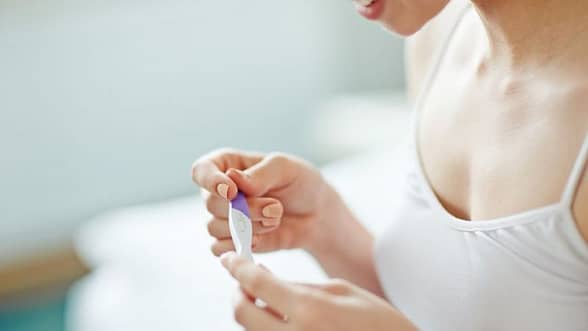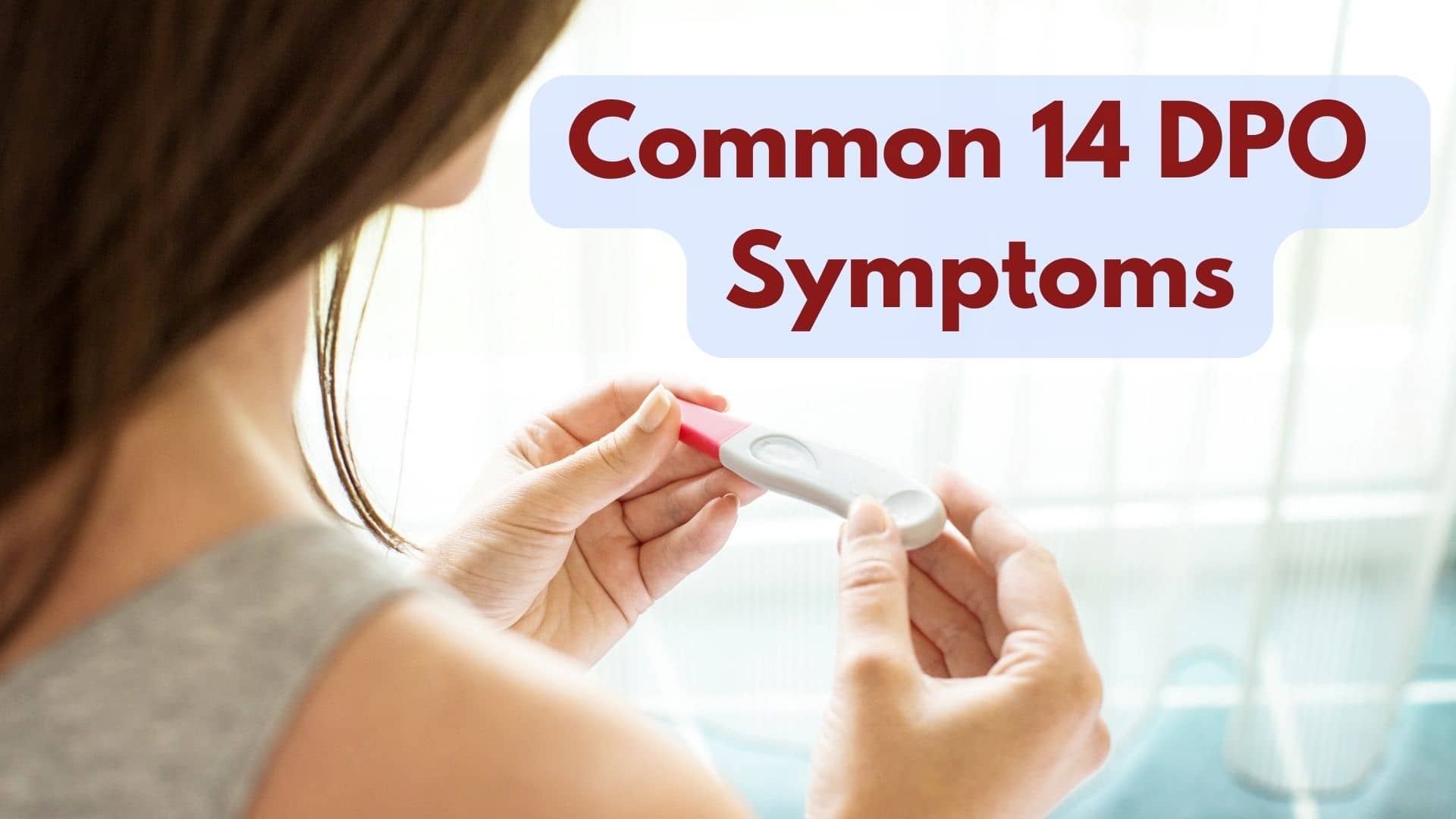You’re on the edge of your seat, eagerly awaiting the answer to the question that’s been on your mind: “What Are The Common 14 DPO Symptoms?” Well, you’re in luck! In this article, we’ll provide you with some valuable information that will give you a clearer understanding of the signs and symptoms you may experience at 14 DPO (days past ovulation).
With our helpful FAQ section and a conclusion that ties it all together, you’ll be equipped with the knowledge you need. So, let’s dive right in and explore the fascinating world of 14 DPO symptoms!
Overview of 14 DPO
What is 14 DPO?
It stands for 14 days past ovulation, which is the approximate time when women may experience early pregnancy symptoms. The number of days that have passed since ovulation occurred refers to the length of time commonly used by women who are trying to conceive or tracking their menstrual cycles. Women trying to conceive or tracking their menstrual cycles often use the number of days that have passed since
Why is it important to track 14 DPO?
Tracking 14 DPO is important for women who are trying to conceive or are monitoring their menstrual cycles. It can provide valuable information about their fertility and help them determine the best time to attempt pregnancy. By tracking symptoms and changes in their bodies at this stage, women can gain insight into whether they may be experiencing early signs of pregnancy.
Physical Symptoms
Fatigue
Fatigue is a common physical symptom experienced at 14 DPO. You may find yourself feeling more tired than usual, even after getting an adequate amount of sleep. This fatigue is believed to be caused by hormonal changes in the body as it prepares for pregnancy.
Breast Tenderness
Breast tenderness or soreness is another physical symptom that many women may experience at 14 DPO. Your breasts may feel swollen, sensitive, or even painful to the touch. This often occurs due to hormonal fluctuations and increased blood flow to the breasts.
Nausea
Nausea, commonly known as morning sickness, can also be a physical symptom experienced at 14 DPO. You may feel queasy or nauseous, especially in the morning or after certain foods. Not all women experience this symptom, although it is commonly associated with pregnancy.
Abdominal Cramping
Abdominal cramping is another physical symptom that some women may experience at 14 DPO. These cramps may feel similar to menstrual cramps and can range from mild to more intense. They are typically caused by the implantation of the fertilized egg into the uterine lining.
Headaches
Emotional Symptoms
Mood Swings
Mood swings can be a common emotional symptom experienced at 14 DPO. You may find yourself feeling more emotional, easily moved to tears, or overly sensitive to situations. Hormonal fluctuations in the body often cause these mood swings in pregnancy.
Anxiety
Feeling anxious or on edge is another emotional symptom that some women may experience at 14 DPO. This anxiety can heighten due to the anticipation of pregnancy or uncertainty about the outcome. It is important to practice self-care and find healthy ways to manage stress during this time.
Irritability
Irritability is a common emotional symptom experienced at 14 DPO. You may find yourself becoming easily annoyed or frustrated, even at minor inconveniences. Hormonal changes often cause this irritability, and its intensity can vary from person to person.
Emotional Sensitivity
Increased emotional sensitivity is another emotional symptom that some women may experience at 14 DPO. You may find yourself reacting more strongly to situations or feeling more empathetic towards others. Hormonal fluctuations and the anticipation of potential pregnancy can attribute to these heightened emotions.
Digestive Symptoms
Bloating
Bloating is a common digestive symptom experienced at 14 DPO. You may notice your abdomen feeling full or distended, and clothes may feel tighter than usual. Hormonal changes, increased gas production, or slowed digestion can cause bloating.
Constipation
Constipation can be another digestive symptom experienced at 14 DPO. You may have difficulty passing stools or experience infrequent bowel movements. Hormonal changes can cause a slowdown in the movement of waste through the intestines, affecting the muscles in your digestive system.
Diarrhea
On the other hand, some women may experience diarrhea at 14 DPO. Diarrhea is characterized by loose, watery stools and can occur due to hormonal and increased sensitivity in the gut. It is important to stay hydrated during this time and consult with a healthcare professional if symptoms persist.
Urinary Symptoms
Increased Urination
Increased urination is a common urinary symptom experienced at 14 DPO. You may find yourself needing to urinate more frequently than usual, even if your fluid intake hasn’t significantly increased. Hormonal changes and increased blood flow to the kidneys can cause an increase in frequency.
Frequent Urination
Frequent urination is another urinary symptom that some women may experience at 14 DPO. Along with the need to urinate more often, you may also experience a sense of urgency or incomplete emptying of the bladder. Hormonal changes and increased blood flow to the pelvic area are also attributed to this symptom.

Sleep Symptoms
Insomnia
Insomnia, or difficulty falling asleep or staying asleep, can be a sleep symptom experienced at 14 DPO. The hormonal changes during this time, combined with the emotional and physical symptoms, can disrupt sleep patterns. Firstly, practicing good sleep hygiene involves establishing a bedtime routine. Additionally, creating a conducive sleep environment is crucial. Moreover, avoiding stimulating activities before bed is essential. Furthermore, implementing relaxation techniques, such as meditation or deep breathing exercises, can help to calm the mind and prepare it for sleep.
In addition, maintaining a consistent sleep schedule, both on weekdays and weekends, can regulate your body’s internal clock and improve sleep quality. Lastly, it’s worth mentioning that avoiding caffeine and heavy meals close to bedtime can also contribute to a better night’s sleep.
Excessive Sleepiness
Conversely, some women may experience excessive sleepiness at 14 DPO. You may find yourself feeling more tired than usual and needing to take naps throughout the day. Hormonal changes and increased energy demands on your body can cause this excessive sleepiness.
Also Check: How To Get A Toddler To Sleep In Own Bed?
Skin Symptoms
Acne Breakouts
Acne breakouts can be a common skin symptom experienced at 14 DPO. Your skin may become more prone to blemishes or breakouts due to hormonal fluctuations. Proper skincare and gentle cleansing can help manage these symptoms.
Skin Sensitivity
Increased skin sensitivity is another skin symptom that some women may experience at 14 DPO. Your skin may feel more sensitive to touch, temperature changes, or certain products. This can be attributed to hormonal changes and increased blood flow to the skin.
Sensory Symptoms
Heightened Sense of Smell
A heightened sense of smell is a sensory symptom experienced by some women at 14 DPO. You may notice that certain scents or odors become more intense or even overpowering.
Changes in Taste
Changes in taste can also be a sensory symptom experienced at this DPO. You may find that certain foods taste different or that you have cravings for specific flavors. These changes in taste can be attributed to hormonal fluctuations and increased sensitivity.

Source: TheTechBrain AI
Miscellaneous Symptoms
Dizziness
Dizziness is a miscellaneous symptom that some women may experience at 14 DPO. You may feel lightheaded or unsteady on your feet, especially when standing up quickly. Hormonal changes and fluctuations in blood pressure can cause these episodes of dizziness.
Backache
Another miscellaneous symptom experienced at 14 DPO is backache or lower back pain. You may feel discomfort or dull pain in your lower back, similar to what you may experience during menstruation. Hormonal changes and changes in the pelvic area can cause this symptom.
Spotting
Some women may experience spotting, or light and irregular vaginal bleeding, at 14 DPO. This can resemble a light period and often occurs due to implantation bleeding, which happens when the fertilized egg attaches to the uterine lining. It is crucial to consult with a healthcare professional if you experience any abnormal bleeding.
Conclusion
Tracking symptoms at 14 DPO can provide valuable insights for women who are trying to conceive or monitoring their menstrual cycles. From physical and emotional symptoms to digestive, urinary, sleep, skin, sensory, and miscellaneous symptoms, each woman may experience a unique combination of signs. It is important to remember that these symptoms are not definitive proof of pregnancy and can vary from person to person. If you suspect you may be pregnant, it is best to consult with a healthcare professional for a proper diagnosis and guidance.
